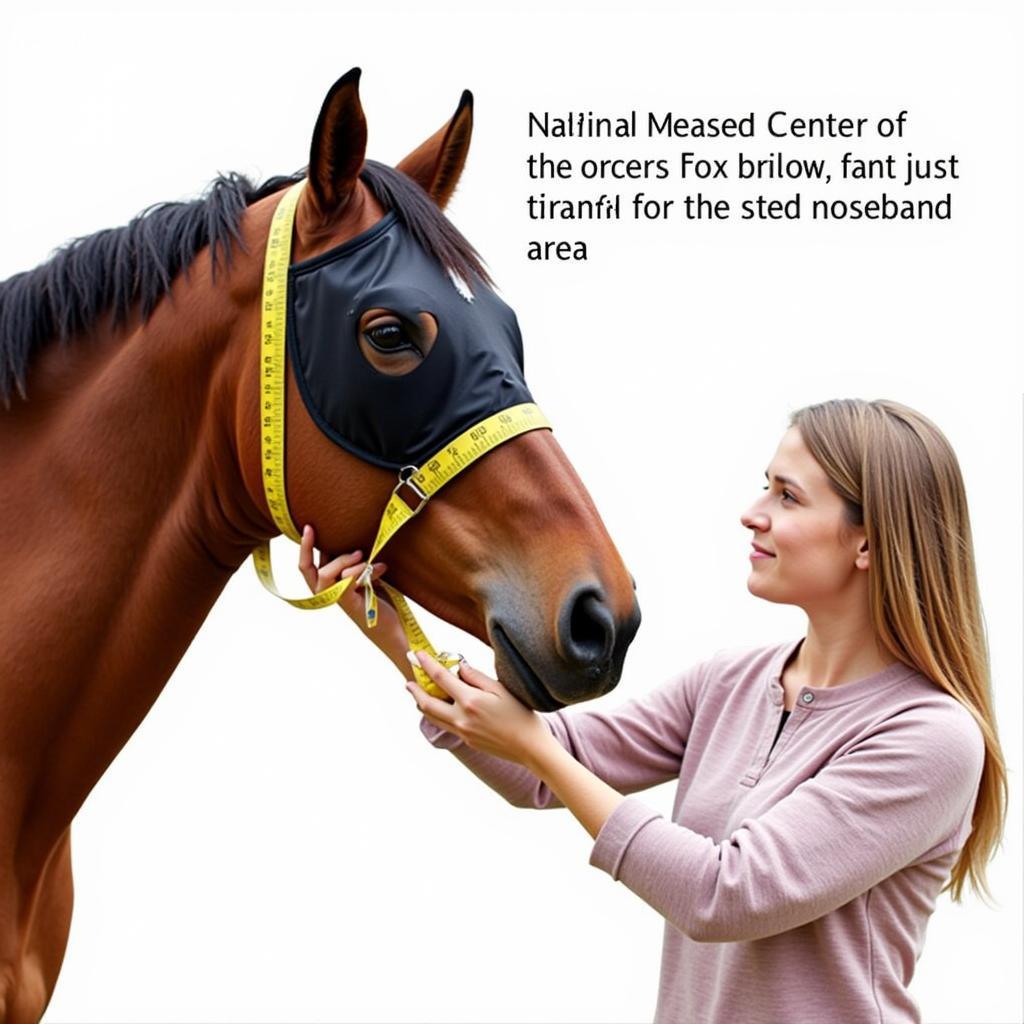Protecting your horse’s sensitive eyes and face from pesky flies is crucial for their comfort and well-being. Finding the Best Fly Masks For Horses can seem daunting with so many options available. This guide will help you navigate the world of equine fly protection and choose the perfect mask for your equine companion.
Choosing the best fly mask for horses involves considering several factors, including material, design, and fit. A well-fitting mask will stay securely in place without rubbing or chafing, while offering maximum protection from flies, UV rays, and other environmental irritants. Check out our horse accessories online for a wider selection of products for your horse’s needs.
Types of Fly Masks for Horses
Different horses have different needs, and fly masks are no exception. Understanding the various types available can help you make an informed decision.
Standard Fly Masks
Standard fly masks are a popular choice, offering basic protection from flies and other insects. They typically cover the horse’s eyes, forehead, and upper cheeks.
UV Protective Fly Masks
These masks offer an added layer of protection against harmful UV rays, which can cause eye irritation and even cancer. They are essential for horses with pink skin or light-colored eyes.
Fly Masks with Ears
For horses particularly bothered by flies around their ears, masks with built-in ear coverings offer excellent protection. These masks often have a soft, mesh material around the ears to allow for airflow while keeping insects out.
No-Vision Fly Masks
Designed specifically for horses with eye injuries or conditions that require limited light exposure, these masks block out all vision while still protecting the eyes from flies.
Fine Mesh Fly Masks
These masks utilize a finer mesh material that effectively blocks even the smallest insects, like gnats and midges, which can be particularly irritating to horses.
Horses can be sensitive around their eyes and face, so it’s important to select a mask made from soft, durable materials that won’t irritate the skin. Look for masks with breathable fabrics to keep your horse cool and comfortable, especially in warmer weather.
What is the Best Fly Spray for Horses? Combining Fly Masks and Sprays
While fly masks offer excellent protection for the face and eyes, they don’t cover the entire body. Using a quality fly spray in conjunction with a fly mask can provide comprehensive protection against insects. If you are curious about fly sprays, our article on what is the best fly spray for horses can offer some helpful insights.
Choosing the Right Size and Fit
A properly fitting fly mask is crucial for both comfort and effectiveness. A mask that is too tight can rub and cause sores, while a mask that is too loose can easily slip off. Most manufacturers offer size charts based on breed or measurements.
How to Measure Your Horse for a Fly Mask
To ensure the best fit, measure your horse’s face from the center of the forehead, just below the ears, to the center of the noseband area. You can also check our guide on eye coverings for horses for further information on measuring and fitting.
 How to Properly Measure a Horse for a Fly Mask
How to Properly Measure a Horse for a Fly Mask
Caring for Your Horse’s Fly Mask
Regular cleaning is essential to maintain the effectiveness and longevity of your horse’s fly mask. Hand wash the mask with mild soap and water, and allow it to air dry completely before putting it back on your horse. Avoid using harsh chemicals or machine washing, as these can damage the mask’s material. Are fly drops for horses an option you’d like to explore? We have information on that as well.
When Should You Use a Fly Mask on Your Horse?
Fly masks are most beneficial during fly season, which typically runs from spring through fall. However, the exact timing will depend on your location and climate. Consider using a fly mask whenever flies are present and bothersome to your horse. Some horse owners also utilize cattle fly tags for horses for additional fly control.
Conclusion
Investing in the best fly masks for horses is a worthwhile investment in your horse’s comfort and overall health. By carefully considering the different types of masks available, the materials used, and the fit, you can find the perfect mask to protect your equine companion from pesky flies and harmful UV rays.
FAQ
- How often should I clean my horse’s fly mask? Ideally, clean it weekly or whenever it becomes visibly soiled.
- Can my horse wear a fly mask overnight? Yes, most horses can safely wear a fly mask overnight, but ensure it fits properly and isn’t causing any rubbing or irritation.
- What material is best for a fly mask? Look for breathable, durable materials like mesh or nylon.
- My horse keeps rubbing his fly mask off. What should I do? Check the fit of the mask. It may be too loose or too tight.
- Are there fly masks for miniature horses? Yes, fly masks are available in a variety of sizes, including miniature horse sizes.
- Can I use a fly mask on a horse with eye problems? Consult your veterinarian for specific recommendations for horses with eye conditions.
- How do I know if my horse’s fly mask fits correctly? The mask should sit comfortably on the horse’s face without gaps or rubbing.
For additional information on horse care, please explore other articles on our website. We encourage you to consider topics such as horse nutrition, hoof care, and general horse health.
Contact us for assistance. Phone: 0772127271, Email: [email protected]. Visit us at: QGM2+WX2, Vị Trung, Vị Thuỷ, Hậu Giang, Việt Nam. We offer 24/7 customer support.